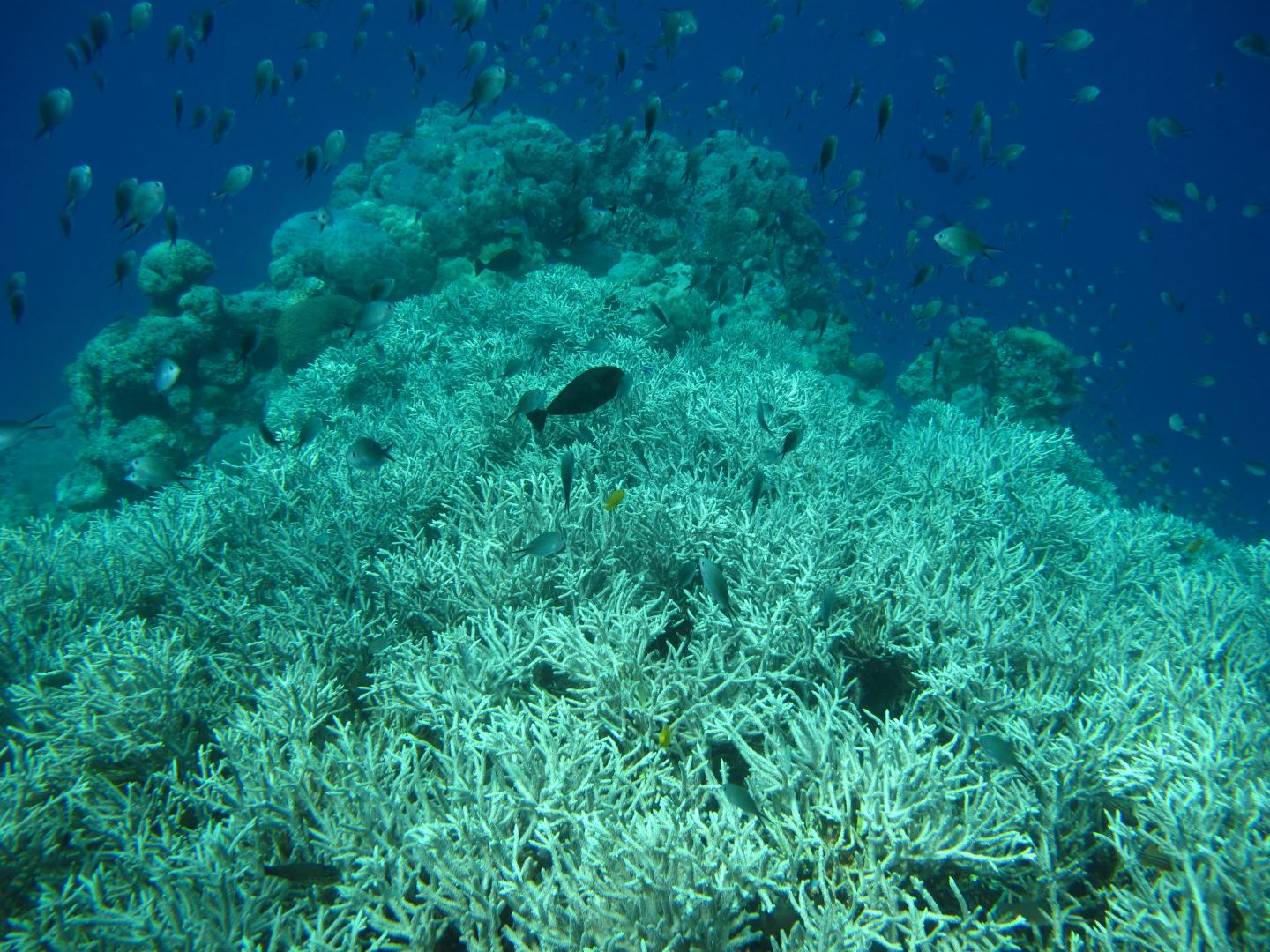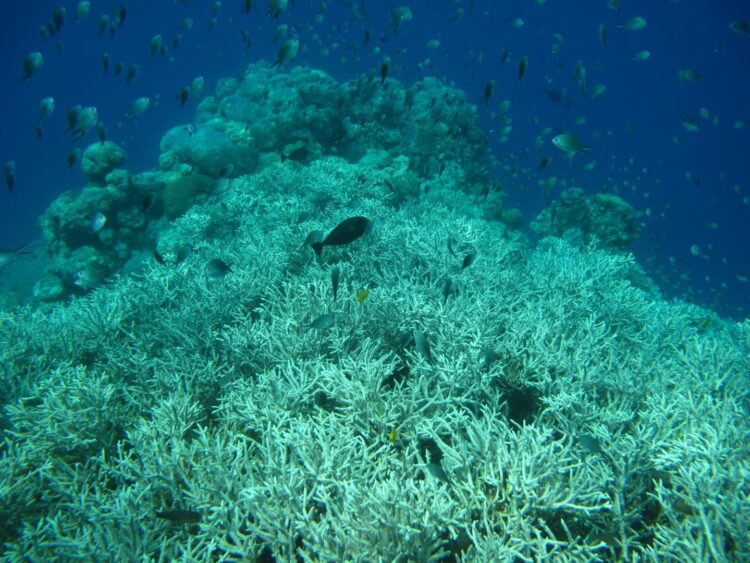The world’s coral reefs could be facing the additional threat of ocean deoxygenation

Credit: David Suggett
The existence of coral reefs, in all their abundant biodiversity and beauty, relies largely on a complex symbiosis between reef-building corals and microalgae. This finely tuned, fragile, partnership is constantly under threat from environmental stress – most notably the twin effects of warming waters and ocean acidification caused by climate change. But scientists say a third driver, that of ocean deoxygenation, could pose a greater and more immediate threat to coral reef survival.
A perspective paper published in Nature Climate Change brings together existing
biological, ecological, and geochemical evidence to consider the broader role for ocean deoxygenation in global coral reef degradation. The University of Technology Sydney (UTS) led study has found that the threat of ocean deoxygenation to coral reefs has largely been ignored and remains unaccounted-for in predictions about future reef health. This is despite reef-building corals underpinning both the ecological and economic value of the world’s coral reef ecosystems.
Lead author, Dr David Hughes, a Research Associate at the UTS Climate Change Cluster, said that measurements taken over the last 50 years showed oxygen levels in the world’s oceans have already declined by around 2% “largely due to the dual forces of global climate change and coastal pollution caused by nutrient runoff”.
“Our oceans are slowly suffocating and although we have some understanding about deoxygenation in the open ocean this process has been largely overlooked in coastal tropical reef systems.
“Although oxygen is a relatively easy environmental variable to measure, there is surprisingly very little data available for coral reefs,” he said.
The authors, who also include scientists from the University of Copenhagen, Denmark and University of Konstanz, Germany, say this lack of data makes it very difficult to assess what normal oxygen levels are on coral reefs or the dissolved oxygen threshold at which areas might become “dead zones”.
“We simply don’t know what constitutes lethal or sub-lethal oxygen thresholds within coral reefs or the role such thresholds will play in determining what future reefs will look like,” Dr Hughes said.
Associate Professor David Suggett, senior author and leader of the Future Reefs Research Program at UTS said it’s likely that understanding the impact of deoxygenation for places like the Great Barrier Reef “holds the key to being able to more accurately predict the future for coral reefs.”
“Oxygen fundamentally sustains reef life.
“It’s possible that declining oxygen availability has amplified, and will continue to amplify, the impact of catastrophic events such as heat-wave driven mass coral bleaching. Capacity for organisms to resist stressors is severely compromised under reduced oxygen availability. It’s why we give oxygen to humans under trauma”, he said.
“Identifying thresholds of low oxygen tolerance and how they vary across coral reef-associated species and environmental history is arguably the key step in understanding
how reef communities will respond to continued ocean deoxygenation,” Associate Professor Suggett said.
The authors say that unlike the deep knowledge gained over the past 30 years around the twin impacts of temperature and pH levels, there wasn’t the same depth of knowledge about ocean deoxygenation and, therefore, how this will shape reef ecologies.
Suggett and Hughes say establishment of an oxygen sensor network on the GBR would be a good place to start and could help develop an oxygen inventory of the reef to enable new approaches and management practices.
A positive outcome from the study is the sign that local management is crucial to preventing further deoxygenation in coastal waters.
“The resources being mobilised to improve agricultural and catchment management on the GBR are good examples of practices to ensure the oxygen stocks of coastal reefs,” Associate Professor Suggett said.
“Everyone has a role to play to ensure our reefs don’t suffocate further,” he said.
###
Media Contact
Ma
[email protected]
Related Journal Article
http://dx.





